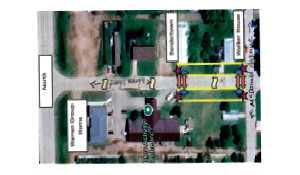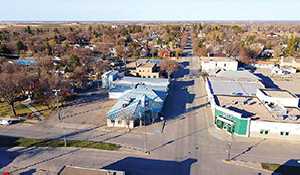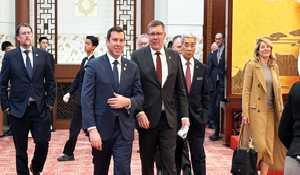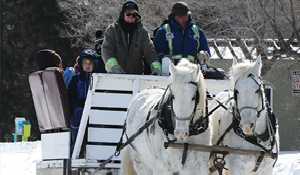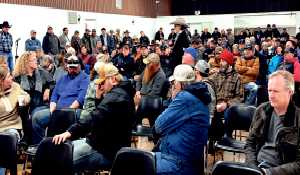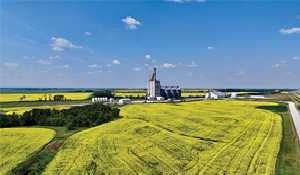Pierre Poilievre visits Moosomin
August 8, 2022, 5:41 pm
by Kevin Weedmark & Sierra D'Souza Butts
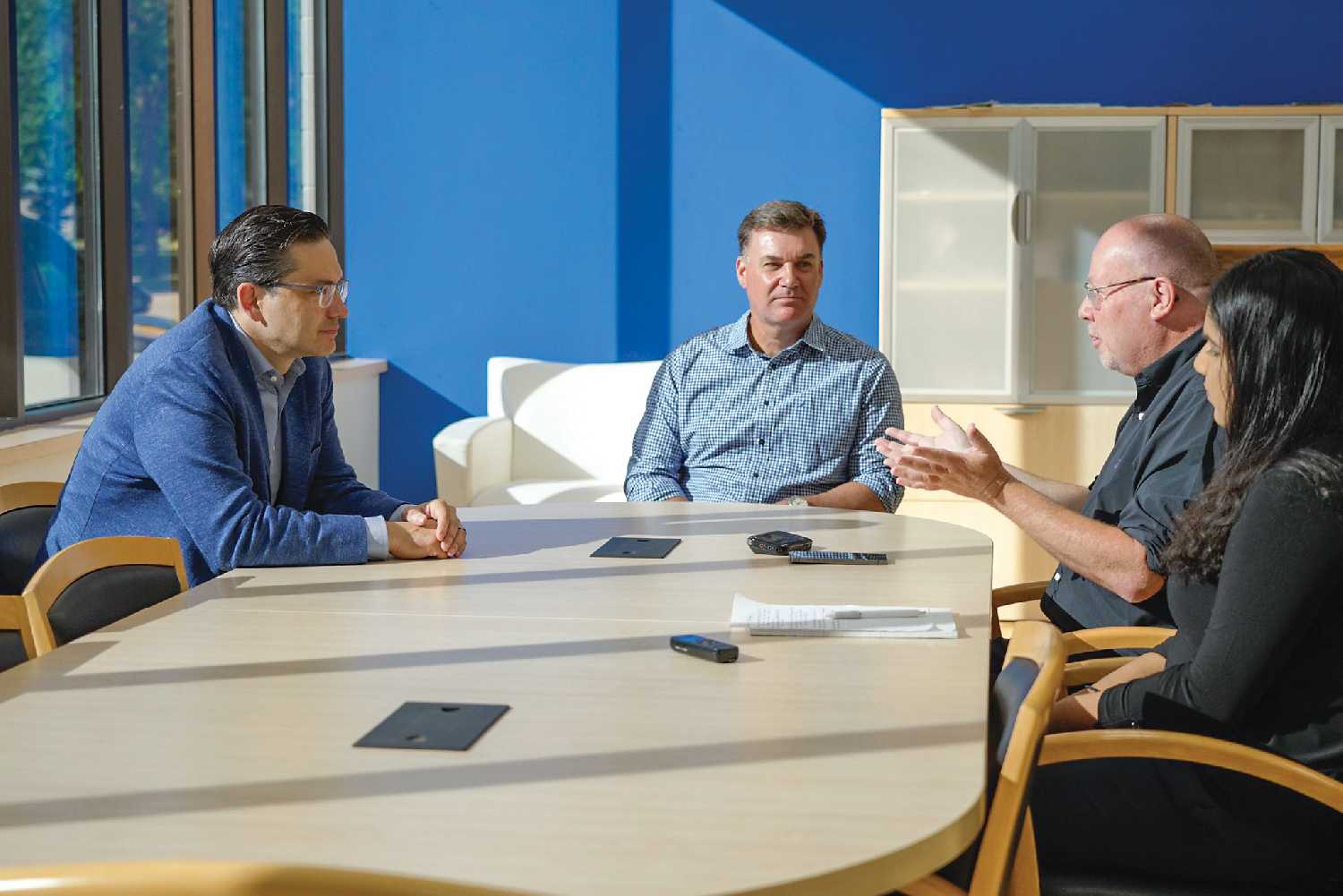

Conservative leadership candidate Pierre Poilievre was in Moosomin August 4, where he met with a group of about 20 supporters over breakfast, and sat down for an interview with the World-Spectator. Following is the full interview:
What are you doing in Moosomin, Saskatchewan this morning? Are these meetings in Manitoba and Saskatchewan all about getting out the vote?
Weíve been travelling around Saskatchewan to get our supporters out to vote. So I did Prince Albert, the Battlefords, Saskatoon, Weyburn, Estevan, Regina, and now here in Moosomin, then we are off to Brandon. Itís good to connect with people, the rural people, the folks that do the work of the nation. I know this is a place where you produce the potash that we need for agriculture, the energy that we need for our economy and of course the agriculture itself, the ranchers and the farmers that feed us. The Moosomin area is a very important place for Canadaís economyóand because of the farmers, for anybody who likes to eat.
What are you hearing from people from Saskatchewan on what they see as important issues at the federal level?
Well, they feel like the federal government is attacking Saskatchewan whether it is the carbon tax, the anti-energy policies or more recently the threat of cutting back fertilizer use by 30 per cent. All of these policies will drive up the cost of living for all Canadians, but will in particular hammer the energy producing and agricultural communities of the country. They want someone who will stand up and champion our energy and our agriculture and that is what I am going to do.
What would you do differently with the emissions caps that the federal government is proposing on the energy and agriculture industries?
I think we should incentivise farmers to become more efficient, but we have to remember that farmers have already cut back their fertilizer use because it saves money to do so. They donít use a milligram more than they need to because it costs a lot. If you are a farmer, you donít want to waste money buying and spreading fertilizer you donít need. Over time, that price incentive will continue to make farmers more efficient. However, if you have the government step in and say we are going to cut their fertilizer use by 30 per cent, that is going to have to cut back the amount of food that comes off of every acre. It is very simple, the reason you use fertilizer is because it enhances output, if you cut fertilizer without replacing it with some kind of enhanced efficiency, then youíre going to have less food. If we produce less food or more expensive food in Canada, it will just mean we get more of our food from other countries. Ironically, that food has to be transported longer distances, burning more fuel, so in a sense we are doing a damage to our farmers and our environment by driving food production out of Canada to foreign jurisdictions.
Some people in agriculture and in energy are saying they feel their industries are under attack with these emissions caps. How do you go about repairing that when you have citizens of your own country feeling targeted by their own government?
Well, stop targeting them. It is pretty straightforward. We obviously need incentives to encourage all of the sectors of our economy to be more environmentally friendly, but that doesnít mean attacking our energy and agricultural sectors, and that is what the Trudeau government is doing right now. Forcing the energy sector to shrink will only drive more production in dictatorship regimes like weíre seeing in Russia. Canada does not export a single drop of oil overseas or single cubic foot of natural gas overseas, because we canít get pipelines or export terminals in this country. The result is the world is increasingly reliant on dictators and Vladimir Putin is taking maximal advantage of that, using his strangle hold on the European energy market to fund his attacks on Ukraine. If we had approved some of the liquefaction facilities that investors proposed seven years ago, today, we would be exporting natural gas to Germany and breaking its dependency on Putin and we could cut Russia off from a lot of its war chest by supplying our own energy as an alternative. But it takes a government that will have clear rules to get projects approved in a reasonable time frame. That is the only way youíre going to get our energy to market.
Whatís your vision for this country. What could this country be if we did allow a freer flow of energy exports and allowed our agriculture industry to continue to expand?
We could be the bread basket of the world. We could be the centre of responsible, environmentally friendly energy production and show the world how it is done. We have carbon capture and storage in Southern Saskatchewan that has the potential to neutralize the effects of oil and gas production. We have the most advanced treatment of workers and Indigenous populations, and we have growing technological advances every single day. We also have the ability to displace dirtier forms of foreign energy production by exporting Canadian uranium for civilian nuclear power and Canadian natural gas to replace Chinaís coal fired electricity. All of these things would be good for the global environment while at the same time bringing paycheques home for our people.
So what is the main message youíve got for conservative supporters? Why are you the person for this job?
Because I have won seven consecutive elections in a big city Ontario riding and I can beat Justin Trudeau. I want to put people back in charge of their lives by making Canada the freest country on Earth.
Recent polls are showing a shift of young voters to the Conservative Party, with a significant shift in the last few months. Why do you think that shift is happening?
I think young people want to take back control of their lives. Many 35-year-olds are stuck living in their parentsí basements because housing has been too expensive. Youth feel like they canít afford food or fuel, and the opportunities that their parents took for granted are no longer available for them. What I am offering in my campaign is to put young people back in charge of their lives by removing the government gatekeepers that prevent us from building homes and producing energy and food here in Canada. That will give young people the chance to have an affordable life, with paycheques that can buy them the things they need. I am going to incentivise the cities to speed up their building permeates so we get more houses built. We have the fewest houses per capita of any G7 country even though we have the most land to build on. Thatís because of bureaucracy. I am going to incentivise the rule of that bureaucracy so young people can afford their own home. I am going to cut income taxes so young people keep more of their paycheques and I am going to stop all of this government money printing, which has caused the 40 year high of inflation. Young people suffer more from inflation than anyone as they donít yet have assets. If you have assets, those assets go up in value, and as the cost of living goes up you can at least hedge against it, but if you are just new out of your parentsí home and youíre 23 or 24 and youíre renting a 400-square-foot apartment, you get higher rent payments, you get higher food and higher energy costs, but you donít have any corresponding stocks, land or other assets to hedge against that. Young people need an end to inflation, it is their only chance to climb the economic ladder. That is what I am fighting for, to tackle inflation by making the government affordable so life is affordable.
If you become Prime Minister, what would be your plan for tackling climate change?
I am going to incentivise carbon capture and storage, reward farmers for the carbon capture that they do on their properties with no-till farming and other advanced techniques that actually capture carbon from the atmosphere and sink it back into the Earth. I am going to encourage our nuclear sector to provide more of our electricity with zero-emitting nuclear power and I am going to incentivise large industrial corporations to reduce their emissions so we can reduce the greenhouse gases, but without a carbon tax. I also think we need to export more clean Canadian energy to the rest of the world and displace dirtier forms. For example, Saskatchewan has the worldís biggest supply of uranium, we can export that uranium for nuclear facilities in Asia that would replace coal fired facilities there with emission-free nuclear power, which is the single most effective way to provide a zero emission base load electricity supply. I would encourage those exports as well.
What are the dynamics of the leadership race right now? Youíve sold a lot of memberships. What do you need to do from now to September 6 to seal the deal?
Get everyone to vote! Itís that simple and that is what we are doing. We are having voting parties and every time we have a rally now we ask people to bring their ballots. Theyíre allowed to drop them off and then we send them in to the party to count. So get out, vote! If you got your ballet, fill it out today and throw it in the mail.
You have been getting some pretty big crowds for your events. What is it about your message that you think is resonating with people?
I think people want to take back control of their lives. A big, bossy government has taken peopleís money and told them what to do and people feel powerless. They want to reclaim control of their lives. The ability to make their own medical decisions, to work hard and earn a great living, to buy a home, to start a career, to afford nutritious food, and thatís what I am running on and people are responding to that.
If you win, how do you go about uniting the party after the race?
We have to be a big tent party where everybody is welcomed. We also have to unite around a principle, which for me is freedom. Fiscal conservatives want economic freedom. Freedom to control their money, start businesses without the government in their way. Social conservatives want the freedom to raise their kids with their own values. Libertarian conservatives want freedom of speech and other personal freedoms. Progressive conservatives want freedom for immigrants, women, Indigenous peoples, gays and lesbians to live their own lives without discrimination. Rural conservatives want the freedom to enjoy their land and responsibly use their firearms. All of these different parts of the Conservative Party have different views and disagreements naturally, but theyíre all united by that single principle of freedom and that is the principle that I will use to unify our movement as we take on the Liberals in the next election.
If youíre elected leader, I am sure the other parties will be attacking you as an extremist. How will you defend yourself against those attacks?
I will just tell people what I actually plan to do, and the people will agree with my policies. My policies are very popular, that is why I have been able to win so many people over. That is why the polls are showing young people moving from the NDP to the Conservatives. I think most Canadians will find my platform very attractive. The opportunity to start a life here in Canada is the reason why we attract 300,000 plus immigrants every year. I am going to sign deals with the provinces to speed up recognition of foreign credentials so our foreign newcomers can actually work in the fields for which they were trained as doctors, engineers, electricians, rather than being shut out by gatekeepers. I am going to get the cities to approve more housing so our young people have a chance to have a home. I am going to lower the cost of energy, tackle inflation, I think these are all pretty common sense ideas that most Canadians can accept.
Why are you in politics? Thereís got to be easier ways to make a living.
There are easier ways I am sure! But I believe in what I am doing. I want to give people back control of their lives. I think small government makes for big citizens. I believe individuals and their families should have maximal freedom to decide for themselves, to spend their own money as they wish, and politicians and bureaucrats should get out of their way and let them do it.
What can you tell us about yourself as a person? From news reports and social media posts, the public doesnít get a clear idea of who a politician really is.
Although I have been elected seven times in Ontario, I am actually from Western Canada. My mother grew up in Saskatoon, my dad grew up in Leoville, Saskatchewan. They married in Saskatoon and moved to Calgary in Ď77 and they adopted me in Ď79. I was born of a 16-year-old unwed mother who lost her own mom, so she put me up for adoption. I was raised in Calgary and moved to Ottawa when I was 21 or 22 and I got elected to parliament in 2004. I have two little kids, the youngest is almost one and the other is almost four. My wife is Anaida and she is a refugee from Venezuela. She has been a political assistant for a senator and another member of parliament. We live just south of the Ottawa airport.
Despite all the hard work, you must enjoy politics. What do you like about it?
I do. Like Michelangelo had said when he was painting the Sistine Chapel, ďItís agony and ecstasy.Ē Itís ups and downs, but I think that the way you get through hardship in life is doing something you believe in, because it gives you a sense of purpose. Life is more than just a pleasure factory, you have to make sacrifices to do things that are worthwhile that you are proud of when you look back on them. Thatís why I do it.
